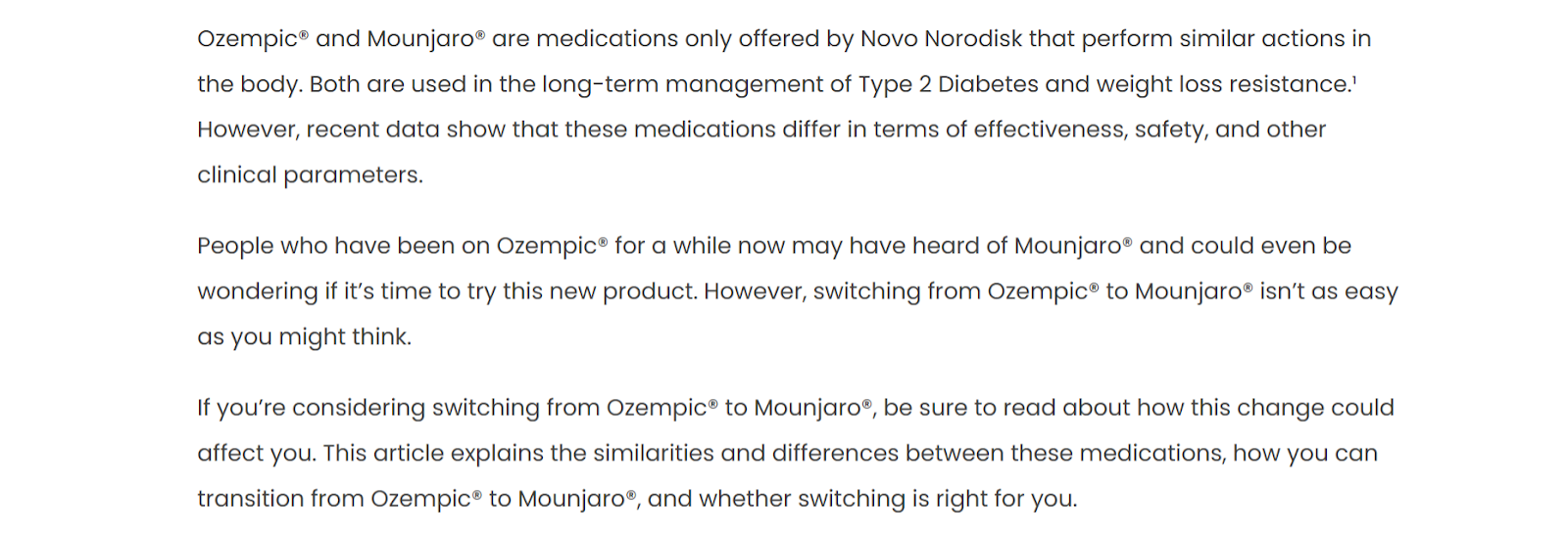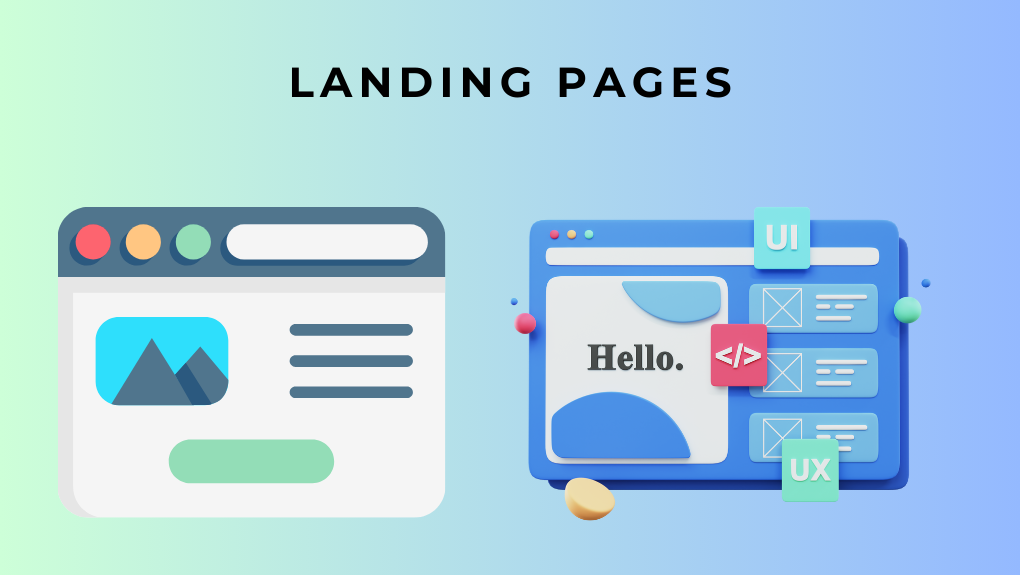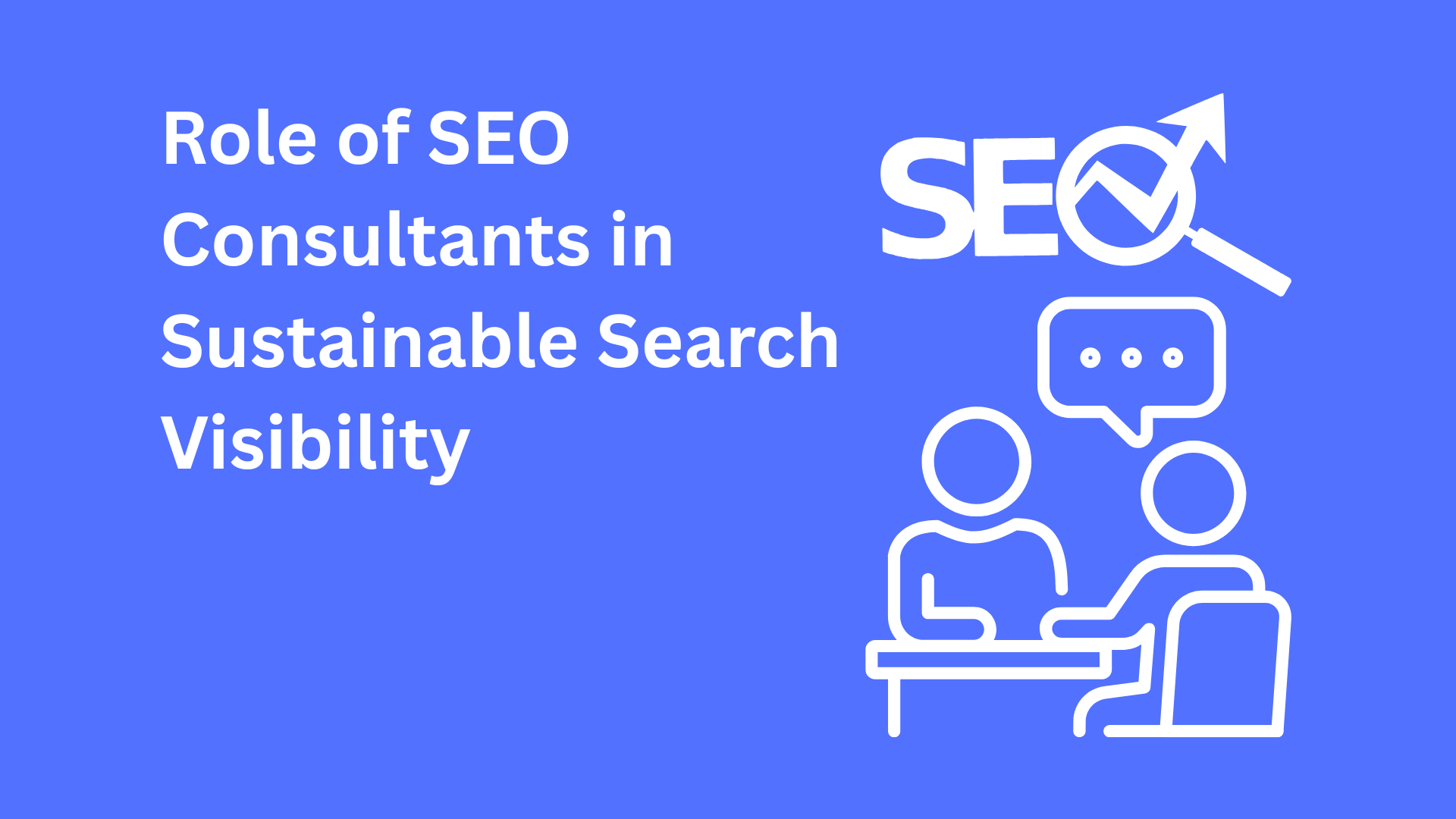Lead generation remains a significant challenge for many providers in the B2C healthcare industry.
Evolving patient expectations mean that patients research extensively, compare multiple providers, or delay care due to cost concerns or fear, leading to fewer conversions.
This challenge is compounded by the amount of information available to patients on different channels, making it difficult for providers to cut through the noise and reach their target audience.
Additionally, healthcare regulations like HIPAA limit how healthcare businesses can collect and use patient data for marketing purposes.
These challenges lead to missed opportunities, potential patients choosing competitors, and ultimately, business stagnation or decline.
However, as a healthcare provider, you can adopt strategic approaches to lead generation that prioritize patient acquisition and retention to overcome these challenges.
This guide will draw insights from B2C brands that have successfully optimized their lead generation efforts. Implementing these tactics will generate more high-quality leads and drive sustainable business growth.
Importance of Lead Generation in The Healthcare Sector
At its core, your healthcare practice is a business whose growth relies heavily on lead generation. If you want to expand services or open new locations, you need a growing patient base.
Consider a dental practice looking to add orthodontic services and has invested in specialized equipment. Without a steady flow of leads who are interested in braces or aligners, the specialized equipment and training investment might not pay off.
Secondly, patients move, switch providers, or no longer need your services, which means that you need to adapt to patient churn.
A pediatric clinic, for instance, naturally loses patients as they age out of pediatric care. Continuous lead generation helps offset this attrition, ensuring a stable patient base and consistent revenue.
Staying competitive in healthcare often requires actively generating leads. In areas with multiple providers, patients have choices.
A physical therapy practice that doesn’t actively attract new patients might lose out to competitors with more visible marketing or innovative service offerings, regardless of the quality of care provided.
Health industry marketers are getting pretty creative these days when it comes to drumming up new business.
Take a look at some of the consumer-facing wellness companies out there - they’re not just slapping up billboards anymore. Instead, they’re building entire ecosystems of content, tools, and services to reel people in.
You’ve got blogs dishing out health tips, online quizzes to assess your wellness, and even telemedicine setups for quick chats with doctors. And they’re covering all sorts of bases, from everyday stuff like nutrition to more personal topics like sexual health.
The smart ones make it feel less like a sales pitch and more like they’re genuinely trying to help. They give folks useful info upfront, earn their trust, and make it super easy for them to take the next step when they’re ready.
With this in mind, let’s look at effective lead-generation strategies in the healthcare industry.
1. Form Health: Use Lead Generation Quizzes
A potential patient visiting your healthcare website typically falls into one of these categories:
1. They searched for your practice by name
2. They clicked on an ad or external link to your site
3. Your website appeared in search results for relevant health queries
In each scenario, some visitors will be ready to schedule an appointment, while others need more information to trust your services.
For those seeking more engagement before committing, lead generation quizzes can be highly effective, tapping into powerful psychological motivators such as:
- Self-discovery: Quizzes promise insights into one’s health, feeding our innate curiosity about ourselves.
- Instant gratification: They provide immediate feedback, satisfying our desire for quick answers.
- Personalization: Health quizzes offer tailored advice, addressing our need for individual attention in medical matters.
- Low-pressure engagement: Quizzes feel less like a commitment than scheduling an appointment, easing anxiety about healthcare decisions.
Lead generation quizzes use these psychological factors to capture potential patients’ interest while collecting valuable information. They help visitors self-identify their health concerns while providing you with crucial data for personalized follow-ups.
For example, Form Health, a weight loss clinic, uses a quiz to learn more about their potential patients. The quiz asks about current weight, health goals, dietary preferences, and exercise habits.
Upon completion, visitors receive a personalized recommendation and are prompted to share their email for detailed results.
This approach engages future patients and allows Form Health to segment leads based on their specific needs and readiness for treatment, in this case, weight loss medication like Zepbound or joining the program.
The quiz format makes the process feel more like a helpful tool than a marketing tactic, building trust and increasing the likelihood of a conversion.
The key is to make the quiz valuable to the user while aligning it with your healthcare services, just like Form Health does here:
2. Fusion Media Staffing: Collaborate With Healthcare Influencers
Relying solely on traditional marketing methods for lead generation in healthcare can leave you vulnerable to missed opportunities and stagnant growth. To make your lead generation efforts more effective, consider tapping into the power of healthcare influencers.
Influencer partnerships can introduce your brand to a broader audience and generate genuine interest in your services. This approach is particularly effective in healthcare, where trust and credibility are paramount.
Take a look at how Fusion Medical Staffing uses this strategy.
Healthcare professionals, especially those early in their careers, often turn to peers for guidance and inspiration. Knowing this, Fusion Medical Staffing partnered with Joey St-Pierre, a popular travel nurse and social media influencer.
Joey’s authentic content about life as a travel nurse resonates with his followers, many of whom are potential candidates for Fusion’s staffing services. By collaborating with Joey, Fusion taps into a pre-existing community of engaged healthcare professionals.
The partnership feels natural and makes Fusion’s services appear as the next logical step for nurses considering travel assignments. Joey’s posts about his experiences with Fusion provide social proof and real-world context that traditional advertising simply can’t match.
If your lead generation efforts aren’t yielding the results you’re after, could it be because you haven’t tapped into the power of influencer partnerships?
How can partnering with the right influencer help you address their existing misconceptions and position your services as the solution?
Can you use influencer collaborations to wake up your target audience and encourage them to take the next step with your company?
Remember, in healthcare staffing, trust is everything. By partnering with respected influencers like Joey St-Pierre, Fusion Medical Staffing isn’t just generating leads—it’s building credibility and fostering a community around its brand.
3. Magic Hour: Reduce The Risk of Commitment
We’ve already talked about partnering with influencers to expand your reach and add credibility to your brand. While influencer collaborations can significantly boost your visibility and attract new visitors, the challenge doesn’t end there.
Many visitors browsing your products and services aren’t always ready to commit to full purchases.
Commitment comes in two forms: financial and experiential. When you use products for lead generation, you ask customers to commit both their money and experience to your brand.
Your products will be competing with other options in the market, and to avoid losing potential customers, provide options that reduce the risk of them feeling overwhelmed by a full purchase commitment.
Magic Hour provides a flexible option through its tea subscription box in this example.
Customers who want to try the full product range are free to do so. However, subscribing to a curated box requires less financial and experiential commitment than purchasing multiple products individually (before you know which tea is your new favorite).
When customers choose the tea subscription box, they receive a carefully curated selection that also offers the option to explore more products later. Magic Hour takes this a step further by incorporating a unique, tarot-inspired design and a self-discovery theme into their subscription box.
This reduces the commitment risk and enhances the overall customer experience, guiding subscribers towards a special tea-drinking ritual that strengthens their relationship with the brand.
Depending on the level of commitment you want from your customers, provide options that reduce their risk. These options, like subscription boxes, can also help you collect valuable data, build new relationships, and filter out potential leads who may not be the best fit for your brand.
4. Delta Remedys: Use Content To Educate Medical Leads
Still on the idea of reducing risks for potential medical leads, when your web visitors are exploring products on your website, particularly novel items like Delta 8 THC gummies, you need to address the hesitation that comes with trying something unfamiliar.
The last thing you want is for customers to feel uncertain about what they’re purchasing. This could lead to potential misuse, disappointment, or negative online reviews that could harm your brand’s reputation and drive potential leads to your competitors.
That said, there’s always some hesitation in trying new wellness products. At this point, you don’t want to have CTAs on your lead generation pages that only push for immediate sales.
Rather, provide options that allow potential customers to feel informed and confident about your products before making a purchase.
For such a brand, most visitors coming to their pages are at various stages of the customer journey. Reducing risk by prioritizing education and transparency is crucial, making potential sellers feel responsible and proactive.
So, Delta Remedys provides customers with multiple options: detailed product information pages, educational blog posts or videos, clear pricing and ingredient lists, and access to third-party lab reports.
You’ll also notice how this brand often uses calming colors and clear, straightforward language on its website when explaining Delta 8 Gummies, which helps reinforce a sense of trustworthiness and safety.
There’s room for those needing more personalized guidance, and it offers easy access to customer support through various channels, making potential sellers feel supported and valued.
By focusing on education and transparency, this brand reduces potential customers’ perceived risk and positions itself as an authoritative and trustworthy voice in this niche, which can significantly improve lead generation and conversion rates.
5. Henry Meds: Use Omnichannel Marketing
A simple but effective approach to lead generation is to be present on different channels, which Henry Meds does by relying on two key strategies: digital visibility and real-world engagement.
These approaches drive attention to the brand across multiple touchpoints, making it stand out in the competitive health industry.
Let’s break this down further to see how it works:
Search engine optimization (SEO) plays a crucial role in Henry Meds’ lead generation strategy.
By optimizing their content for relevant health and weight loss topics, such as “switching from Ozempic to Mounjaro,” they ensure their website appears at the top of search results. This visibility is critical as studies show most users click on the first few search results.
When you look at Henry Meds’ content strategy, it’s not just about quantity, but quality. They’re producing high-quality content that addresses their audience’s needs and interests.
Henry Meds has designed a comprehensive social media presence to fully utilize multiple
platforms.
They’re not just posting content but actively engaging in conversations, which builds trust and rapport with potential customers.
Take things a step further by combining digital efforts with a physical presence, just like Henry Meds does.
They participate in health fairs, which allow for face-to-face interactions that can significantly boost brand trust and recognition. When potential customers meet the real people behind the brand, it creates a lasting impression that online interactions alone can’t match.
This multifaceted approach of blending digital expertise with real-world engagement drives Henry Meds’ lead generation success. By being present where their audience is—whether online or offline—they’re maximizing their opportunities to connect with potential customers.
Conclusion
Effective lead generation is crucial for growth and sustainability. The strategies employed by Form Health, Fusion Media Staffing, Magic Hour, Delta Remedys, and Henry Meds demonstrate the diverse approaches available to healthcare providers.
From engaging quizzes and influencer partnerships to subscription models, educational content, and omnichannel marketing, these tactics showcase how to attract and nurture potential patients.
By prioritizing trust-building, reducing commitment barriers, and providing value upfront, your practice can overcome industry-specific challenges and create meaningful connections with your audience.
As the healthcare sector and patient expectations continue to evolve, adopting lead-generation strategies to meet changing patient needs and preferences will position you for long-term success and growth.
Here's to your success in landing all those new potential clients!















